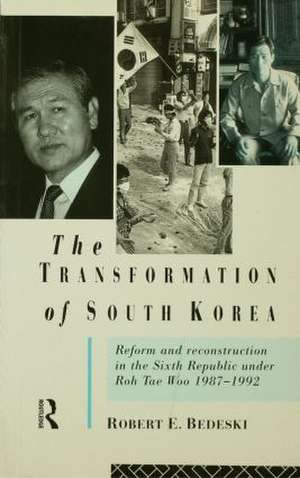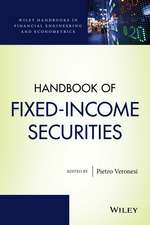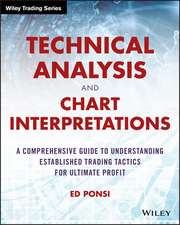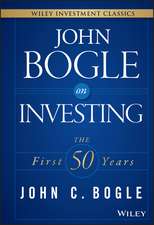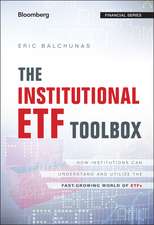The Transformation of South Korea: Reform and Reconstitution in the Sixth Republic Under Roh Tae Woo, 1987-1992
Autor Robert Bedeskien Limba Engleză Paperback – 14 apr 1994
Robert E. Bedeski provides a thorough analysis of the institutions of government in South Korea and how they have been transformed by the introduction of political pluralism, and of the attempt to liberalize without undermining economic success. He also examines the new political parties and their role within the framework of the South Korean political system, as well as their social context. State reforms are compared with developments in Taiwan, the Phillipines, North Korea, China and the former Soviet Union. The major themes of state-building an deconomic development are thoroughly explored. The author also deals with South Korea's international environment and changing foreign policy.
| Toate formatele și edițiile | Preț | Express |
|---|---|---|
| Paperback (1) | 565.66 lei 6-8 săpt. | |
| Taylor & Francis – 14 apr 1994 | 565.66 lei 6-8 săpt. | |
| Hardback (1) | 932.83 lei 6-8 săpt. | |
| Taylor & Francis – 18 dec 2020 | 932.83 lei 6-8 săpt. |
Preț: 565.66 lei
Preț vechi: 665.48 lei
-15% Nou
Puncte Express: 848
Preț estimativ în valută:
108.27€ • 117.65$ • 91.01£
108.27€ • 117.65$ • 91.01£
Carte tipărită la comandă
Livrare economică 21 aprilie-05 mai
Preluare comenzi: 021 569.72.76
Specificații
ISBN-13: 9780415106047
ISBN-10: 0415106044
Pagini: 208
Dimensiuni: 138 x 216 x 17 mm
Greutate: 0.38 kg
Ediția:1
Editura: Taylor & Francis
Colecția Routledge
Locul publicării:Oxford, United Kingdom
ISBN-10: 0415106044
Pagini: 208
Dimensiuni: 138 x 216 x 17 mm
Greutate: 0.38 kg
Ediția:1
Editura: Taylor & Francis
Colecția Routledge
Locul publicării:Oxford, United Kingdom
Cuprins
Preface -- List of abbreviations -- 1 State reform in South Korea -- Introduction -- Background of the modem Korean state -- Conflict and political reform -- The first five Republics: background to democratization -- The Third and Fourth Republics: economic and social transformation under Park Chung Hee -- Transition to the Fifth Republic -- The Sixth Republic and the Roh presidency -- Summary -- 2 The institutions of government -- Foundations of the modem Korean state -- Government structure - weak v. strong institutions -- Liquidation of the legacy of the Fifth Republic -- Constitutional reform in the Sixth Republic: the presidency and local government -- The 1992 presidential elections -- The election results -- 3 Political parties and South Korean politics -- The character of political parties in South Korea -- The institutionalization of political parties -- The development of political parties in South Korea -- The authority crisis of 1985 -- Creating a new ruling party -- Political parties and liberalization -- Conclusions -- 4 The economic context of reform -- Introduction -- Towards balanced growth: maturing of a developing economy -- Labour -- Capital - the chaebol and the state -- Agriculture reform -- The economic dimensions of social conflict -- 5 The social context of Korean politics -- Divisions and unity in South Korean society -- Factors of social change -- Pluralism and equality -- Education and Korean society -- Social conflict - catalyst for democracy? -- Conclusion -- 6 State reform in a comparative context -- State-building and social engineering in South Korea -- What is state reform? -- Taiwan - another 'piecemeal experiment' -- The People's Republic of China -- North Korean politics - the Kim fl Song dictatorship -- The USSR and its successor, Russia -- Implications -- Conclusions -- 7 South Korea's international environment and foreign policy -- South Korea as a rising middle power -- South Korea foreign policy: Nordpolitik -- An assessment of Nordpolitik -- 8 Conclusions -- Appendix: Roh Tae Woo's declaration of 29 June 1987 -- Notes -- Selective bibliography -- Index.
Notă biografică
Robert E. Bedeski has lived and worked in various parts of East Asia since 1959, has taught and written about the comparative politics and international politics of the region. He is now Professor in the Department of Political Science, University of Victoria.
Descriere
A thorough analysis of the institutions of government in South Korea, their transformation by the introduction of political pluralism, and the impact of that on the country's economy.
